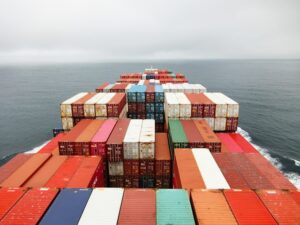The maritime trade landscape is undergoing a significant transformation as European wheat vessels strategically reroute, circumventing the traditional Suez Canal passage due to escalating security risks.
Bloomberg reports that this shift, prompted by Houthi militant attacks on merchant ships in the Red Sea, reflects a growing trend that has altered the dynamics of global grain transportation.
According to the World Trade Organization’s wheat dashboard, shipments from major grain exporters such as the European Union, Ukraine, and Russia have witnessed a remarkable surge in choosing alternative routes to reach key destinations in Asia and Africa.
The data shows that the share of shipments opting for alternative paths skyrocketed from 8% last month to a substantial 42% by mid-January.
This significant deviation from the Suez Canal route has not gone unnoticed by industry players, with implications reaching far beyond the shipping lanes. The number of cargoes transiting through the Suez Canal has experienced a sharp decline, down by 40% compared to the same period a year ago.
The driving force behind this rerouting strategy is the increasing vulnerability of vessels to security threats, disrupting the once-preferred Suez Canal passage. Commodity carriers, compelled to take longer and more expensive routes, find themselves navigating through uncertain waters marked by geopolitical tensions.
The situation adds another layer of complexity to the challenges faced by grain markets, which have already contended with disruptions caused by the ongoing war in Ukraine and low water levels at the Panama Canal.
This underscores the fragility of global food supply chains and the susceptibility of vital trade routes to external pressures.














